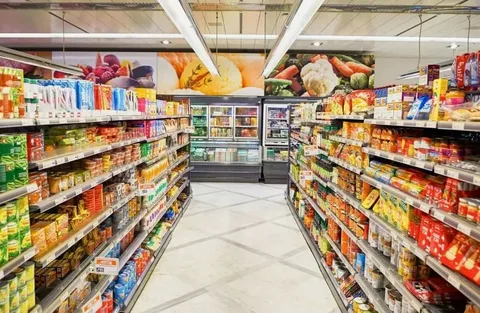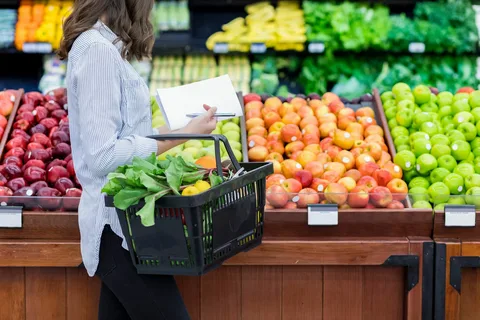Running a grocery store is no small feat. From managing inventory to ensuring customer satisfaction, there’s a lot on your plate. But one thing you shouldn’t overlook is insurance. Grocery store insurance programs are essential for protecting your business from various risks. In this article, we’ll dive deep into the world of grocery store insurance, covering everything you need to know. So, grab a cup of coffee, sit back, and let’s get started!

Why Do Grocery Stores Need Insurance?
Grocery stores face unique risks that can lead to significant financial losses. Imagine a power outage that spoils all your perishable goods or a customer slipping on a wet floor and suing you for damages. Insurance helps mitigate these risks and ensures your business can continue to operate smoothly. According to Insureon, having the right insurance coverage can save you from unexpected costs.
Types of Grocery Store Insurance
General Liability Insurance
General liability insurance covers financial losses from customer lawsuits. This includes slip-and-fall accidents, damaged customer property, and product liability issues. It’s a must-have for any grocery store owner.
Property Insurance
Property insurance protects your store’s physical assets, including the building, equipment, and inventory. Whether it’s a fire, theft, or natural disaster, property insurance ensures you’re covered.
Workers’ Compensation Insurance
If you have employees, workers’ compensation insurance is crucial. It covers medical expenses and disability benefits for employees who get injured on the job. Most states require this type of insurance.
Commercial Auto Insurance
If your grocery store offers delivery services, commercial auto insurance is essential. It covers the cost of accidents involving your delivery vehicles.
Business Owner’s Policy (BOP)
A Business Owner’s Policy (BOP) combines general liability and property insurance into one package. It’s a cost-effective way to get comprehensive coverage for your grocery store.
Top Providers of Grocery Store Insurance
Choosing the right insurance provider is crucial for getting the best coverage. Here are some top providers:
Simply Business
Simply Business is a brokerage firm that allows you to compare multiple insurance quotes from various carriers. This makes it easier to find the best coverage for your specific needs. Learn more.
The Hartford
The Hartford is known for offering comprehensive Business Owner’s Policies (BOP) designed for grocery store chains. They provide excellent customer service and customizable coverage options.
NEXT Insurance
NEXT Insurance offers general liability insurance policies tailored for grocery stores. They are known for their easy-to-use online platform and competitive rates.
State Farm
State Farm is a great option for independent grocery stores. They offer a range of insurance products and have a strong reputation for customer service.
Tivly
Tivly is ideal for new independent grocery stores. They work with knowledgeable agents to provide the best coverage options for your business.

How Much Does Grocery Store Insurance Cost?
The cost of grocery store insurance varies based on several factors, including the size of your store, location, and the types of coverage you need. On average, a small grocery store can expect to pay between $500 and $2,000 per year for general liability insurance. Property insurance and workers’ compensation will add to this cost.
How to Find Cheap Coverage
Finding affordable insurance coverage doesn’t have to be a hassle. Here are some tips:
- Compare Quotes: Use brokerage firms like Simply Business to compare multiple quotes.
- Bundle Policies: Consider a Business Owner’s Policy (BOP) to save on premiums.
- Increase Deductibles: Higher deductibles can lower your premium costs.
- Maintain a Safe Environment: Implement safety measures to reduce the risk of accidents and claims.
Common Claims in Grocery Stores
Understanding common claims can help you better prepare and prevent them. Here are some frequent claims:
Slip-and-Fall Accidents
These are the most common claims in grocery stores. Regularly inspect and clean your floors to prevent accidents.
Food Spoilage
Power outages or equipment failures can lead to food spoilage. Ensure you have backup generators and regularly maintain your equipment.
Employee Injuries
From lifting heavy boxes to operating machinery, grocery store employees are at risk of injuries. Provide proper training and safety equipment to minimize these risks.

Conclusion
Grocery store insurance is not just a safety net; it’s a necessity. By understanding the different types of coverage and choosing the right provider, you can protect your business from unforeseen risks. Remember, a well-insured grocery store is a successful grocery store. So, don’t wait—get the coverage you need today!
Feel free to reach out if you have any questions or need further assistance. And remember, always keep your sense of humor—after all, laughter is the best policy! 😄
I hope this article helps you understand the importance of grocery store insurance programs. If you have any specific questions or need more detailed information, feel free to ask!